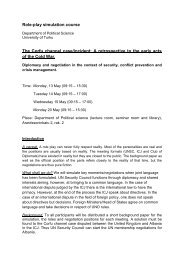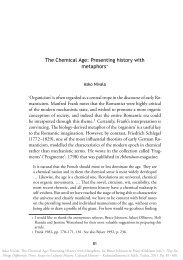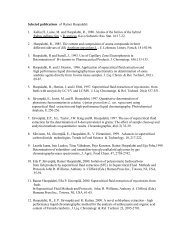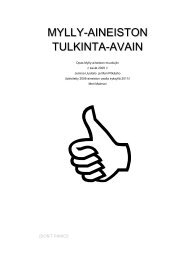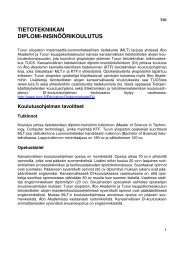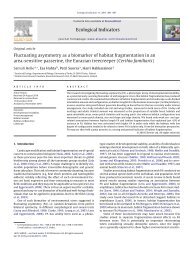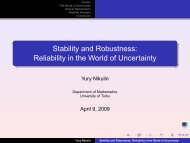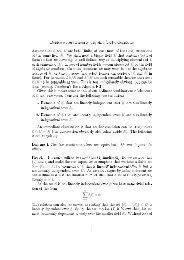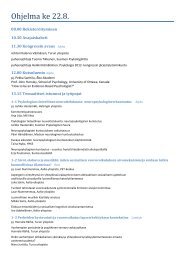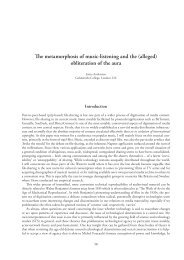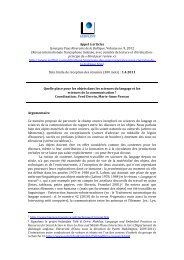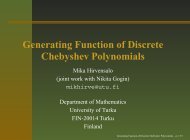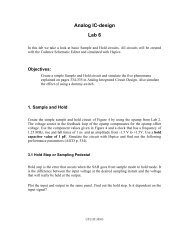The Chemical Age: Presenting history with metaphors∗
The Chemical Age: Presenting history with metaphors∗
The Chemical Age: Presenting history with metaphors∗
Create successful ePaper yourself
Turn your PDF publications into a flip-book with our unique Google optimized e-Paper software.
<strong>The</strong> <strong>Chemical</strong> <strong>Age</strong><strong>The</strong>refore the genre of fragment is comparable to metaphorical poetic logicin general. If fragments are metaphorical definitions or characterizationsof things, it is necessary to consider how Schlegel conceived the act ofdefining. 19 Moreover, this will clarify the sense in which the conceptualand metaphorical languages are interdependent. As Werner Stegmaierhas noted, Kant already observed that philosophy is unable to enforceprescriptive definitions to its concepts. Philosophy can only extrapolatefrom existing and spontaneous linguistic usage. Only mathematics cantruly construct concepts, for it is completely independent of experience.Moreover, only mathematical concepts can be defined unambiguously. Bycontrast, philosophy can only clarify its concepts <strong>with</strong> other concepts borrowedfrom a natural language. Stegmaier explains the Hegelian conceptof animate spirit from this theory of processual philosophical concepts. 20However, it is equally possible to connect this notion <strong>with</strong> Schlegel’s definitionof Romantic poetry that is perpetually becoming and never perfectedas a completed system. 21<strong>The</strong> metaphors included in Romantic fragments are temporary andsketchy definitions that are applied to reality. <strong>The</strong>y can be constantlyextended. Schlegel was sceptical of the possibility that philosophy couldproceed according to binding and rigid definitions. He tried to introducethe concept of characterization instead of definition:(Character is something other than a definition. definitio specifies the genus,and the differentiam specificam. But in philosophy we neither want nor arewe able to do this since the differentia specifica would be infinite.) If weset ourselves the task of determining the character of philosophy, this doesnot mean determining it exactly, for this would be defining; rather, onlyinasmuch as it is possible for our purpose. 22Schlegel distanced himself from the Aristotelian logic and its tendencyto consider knowledge as a hierarchical system. According to this view,knowledge would consist of propositions that give genus and differentia19 Cf. Chaouli 2002, p. 113.20 See Stegmaier 1997.21 See KFSA II, p. 183. No. 116; KFSA II, p. 265. No. 95. Cf. Blumenberg [1960]1998, pp. 84–86.22 Schlegel 1997 (1800-1801), p. 242; KFSA XII, p. 4.Asko Nivala: <strong>The</strong> <strong>Chemical</strong> <strong>Age</strong>: <strong>Presenting</strong> History <strong>with</strong> Metaphors. In: Bruce Johnson & Harri Kiiskinen (eds.): <strong>The</strong>y DoThings Differently <strong>The</strong>re. Essays on Cultural History. Cultural History – Kulttuurihistoria 9. k&h, Turku, 2011. Pp. 81–108.87




